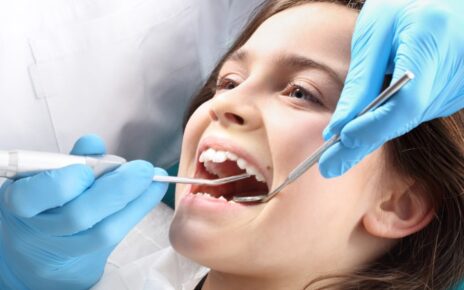When it comes to your self-presentation anywhere in your life, your breath is crucial. In Weston, Massachusetts, it is essential to comprehend the science behind foul breath, the different causes, and the techniques for keeping your breath odor pleasant. If you have terrible breath or halitosis, you could feel uncomfortable and self-conscious around other people.
However, what leads explicitly to this adverse state? If you need a dentist to treat any dental problems, including bad breath, schedule an appointment with the dentist in Weston, MA, as soon as possible.
How is Bad Breath Caused?
Two frequent reasons for bad breath are eating unhealthy meals and not taking care of your teeth and gums. Bacteria that make odorous sulfur compounds love to feed on food scraps from your mouth and teeth. Brush and floss daily to stop bacteria from growing.
When there is not enough saliva in the mouth, a dry mouth develops. This may be a result of certain drugs, illnesses, or behaviors, such as breathing through your mouth. Strong-smelling foods, like garlic, onions, and hot food, can leave your breath smelling bad for a while.
The gut breaks down these compounds, and the lungs exhale them. Other health conditions such as acid reflux, gum disease, persistent skin infections, gum diseases, and acid reflux have also contributed to bad breath.
What Are Some Strategies To Help With Bad Breath?
-
Be sure to stay hydrated.
Water helps produce saliva, which keeps your mouth clean, so drink lots of it. Avoid dehydrating drinks: Drink liquids, such as wine and coffee, in moderation.
-
Pay attention to what you eat.
Reduce your intake of foods with strong smells, such as garlic, onions, and other foods with a strong fragrance. Avoid sugar. Foods high in sugar can encourage the growth of bacteria. Eat a diet high in whole foods, fruits, and vegetables. Both your teeth and general health will gain from this.
-
Take care of any health concerns.
Consult a doctor when it is important. If you suspect a serious health problem, such as gum disease, acid reflux, ear problems, or an illness that affects your entire body, you should get in touch with a doctor right once to receive the right care.
-
Make adjustments to your lifestyle.
Quit smoking because it harms your mouth and gums, which may cause an unpleasant odor.
-
Deal with your stress:
Relaxation methods like yoga or meditation can help reduce dry lips. To prevent dry mouth and bad breath, avoid inhaling through your mouth. Try using your nose to breathe as much as you can.

What Are The Most Important Steps in Making Keeping Your Teeth Clean a Priority?
-
Brushing twice a day:
Brush your teeth twice a day for at least two minutes each time. Use toothpaste that contains fluoride. Do not forget to clean your lips, gums, and the back of your teeth.
-
Floss every day:
This helps to get rid of bacteria and food particles that your toothbrush cannot get between your teeth.
-
Clean your tongue:
Simply scrape your tongue or use a toothbrush to get rid of microorganisms gently.
-
Regular dental examinations:
Arrange for regular dental examinations to detect and treat any gum disease, tooth loss, or other oral health conditions that might be causing your bad breath.
Wrapping Up!
Make use of quality mouthwash is the first step. By removing bacteria, a high-quality mouthwash can also reduce breath odor. Sugar-free chewing gum: Salivation from gum without sugar temporarily covers the bad breath.
Professional cleaning is an excellent, iterative step. Bad breath can be caused by plaque and tartar buildup, which can be removed with regular dental cleanings.By understanding how bad breath works scientifically and following these instructions, you may effectively address this common issue and have better, more confident breath.





